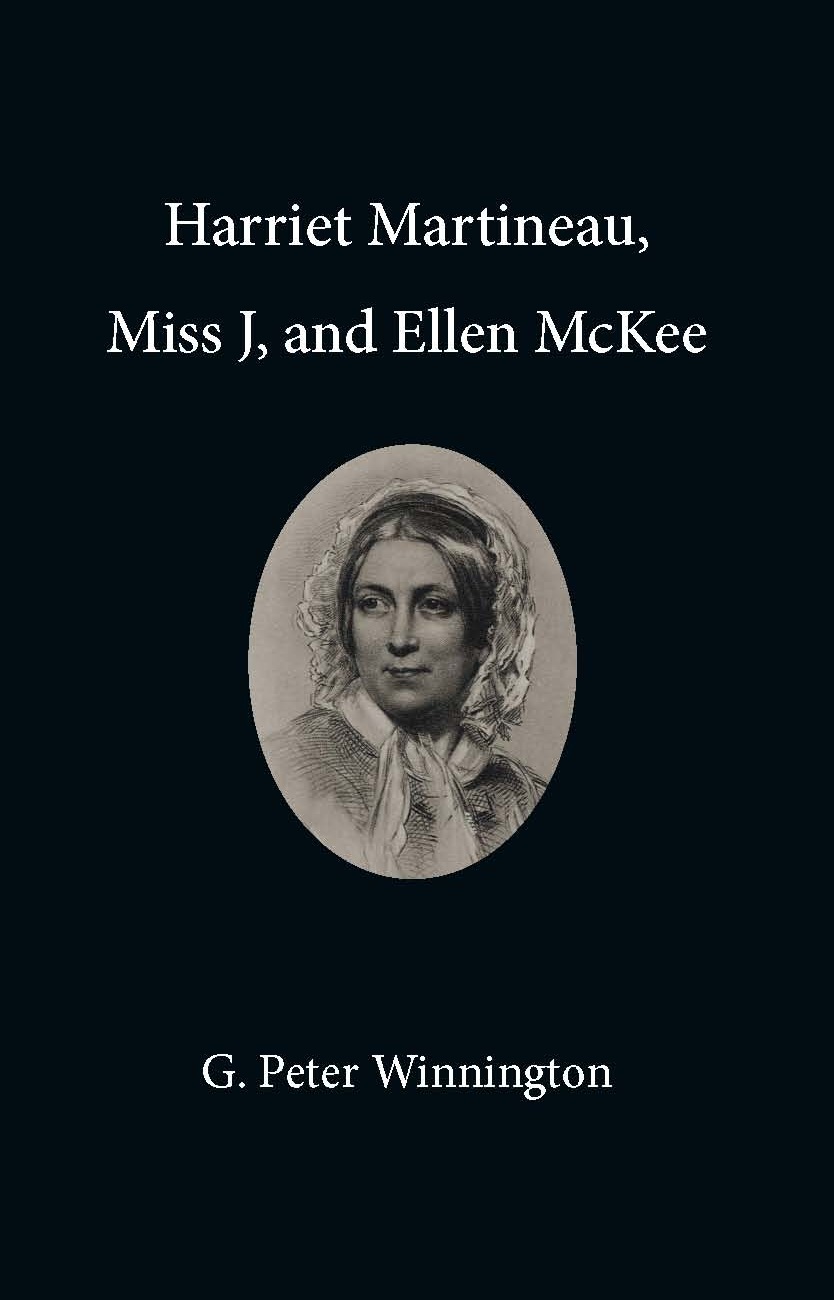Between 1834 and 1836, Martineau travelled throughout America, interviewing everyone she met, from the President down to a black slave girl who sat at her feet. On her return she wrote Society in America (1837), a pioneering work of sociology. (For his contemporaneous Démocratie en Amérique, de Tocqueville spoke only to white men, and in broken English at that.) Because she was very deaf, Martineau took with her a companion-cum-assistant whom she referred to (in her Autobiography) as ‘Miss J’.
Martineau described Miss J as ‘remarkably clever, supremely rational, and with a faultless temper,’ and admitted that she ‘owed’ Society in America to her. They became life-long friends, yet Miss J was first named in print only in 1935; a Martineau scholar mis-identified her as recently as 2007.
‘Of all the personages to be
encountered on this safari, none remains so shadowy as Miss Jeffery.
She was apparently a paragon of every virtue, but no one has any more to
say than that.’
Elise
Lynn Prentis in The Courier (Syracuse University Library Associates,
Vol XI, No. 4 and Vol XII, No 1. Winter
1975, pp.3–21; p.9)
So this is the first life ever of the admirable Miss J – Louisa
Caroline Jeffery (1806–87) – and her daughter Ellen McKee (1844–1929), who
was much influenced by Martineau. It is largely based on uncollected
letters by Martineau and on Courtauld family letters
dating from 1815 to 1850, which can be seen only in the British
Library.
Although Miss J was an orphan from the age of nine, she was very sociable
and a good mixer; she greatly facilitated Martineau’s social contacts in America. ‘Our
popularity so far I consider to be much owing to the cheerfulness and
pleasantness of her manner,’
wrote Martineau, about a month into their tour.
This monograph – only 96 pages – situates Miss J in her extended family, notable for her uncle Samuel Courtauld (who founded Courtaulds, the great textile company). It shows the importance of her life-long friendship with Mary Barnes, who married the Unitarian minister John Relly Beard. Beard studied alongside Harriet Martineau’s brother James and William Gaskell (whose wife Elizabeth is universally known as the novelist Mrs Gaskell).
Miss J
married Beard’s
teaching assistant, James McKee. For their daughter Ellen, Harriet
Martineau seems to have served as a kind of honorary aunt.
Encouraged by her cousin
Peter
Taylor and his wife
Mentia (‘the mother’ of the English women’s parliamentary suffrage movement),
Ellen McKee embarked on a life directed towards giving
women a voice in local government, becoming one of fewer than thirty women elected to the
London School Board
during the thirty years of its existence.
In this context she also sought to provide suitable facilities for
London’s physically impaired children, particularly the deaf, just as her friend
Mary Dendy (John Relly Beard’s granddaughter) was doing in Manchester at exactly the same time. Thus
both women were working (in the Beard tradition) toward
what Harriet Martineau would have wanted.
In telling the lives of Miss J and her daughter, this book reveals
previously unnoticed connections between famous
people, and an unrecorded
episode in Harriet Martineau’s life when she attempted to use Mesmerism to help one of Miss J’s aunts.
With three illustrations
Feedback
‘A very nice job! And the details of your book gave me a much better idea of
life in the nineteenth century in England.... In addition, I find your style
pleasing – fluid and with a brisk pace.’ — Barry Tharaud, editor of
Nineteenth-Century Prose
Christina Hardiment, author of many books, writes that she was ‘absolutely
fascinated. What ingenious and productive research you have undertaken!’
Laurence Bristow-Smith (a Letterworth Press author) writes, ‘This
is a staggering piece of research. It’s fascinating in its own right. And
fascinating also because of the way it gets inside nineteenth-century
society.’
About the
author
Published in April 2019; updated with an additional illustration in June
2019.
G. Peter Winnington has written acclaimed biographies of Mervyn
Peake (Vast Alchemies (2000), re-issued in 2009 in an expanded edition titled Mervyn Peake’s Vast Alchemies)
and Walter Fuller (Walter Fuller: the Man Who Had Ideas
(Letterworth, 2014). For his other publications see his
website.
Price (paperback only): £7.50, US$9.99, euro 9.00
ISBN 978-2-9701307-0-3
